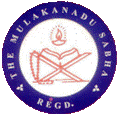|
 |
ORIGINS OF MULAKANADUS |
Human psyche has unending urge to know the unknown and resolve many mysteries surrounding their lives. One such urge relates to the roots of their origin. It is therefore, no wonder, we Mulakanadus are also curious to trace back our origins, specially because we are living as minorities in other provinces than our own. Below are some of the condensed information about our origin gathered from wikipedia website.
 |
The Telugu speaking Mulakanadus are spread all over southern states, notably in Karnataka and Tamilnadu and partly in Maharashtra. |
 |
There are various versions available about the place of our origion and therefore it is not possible to say it with certainity. |
 |
As per one version Mulkis were a sub-sect, lived south of Vindyas in the Vijayanagaram Empire in the 1st and 2nd century A.D. which was known as Mulka. 'Nadu' is of course a word common in the south meaning state or country. Further from the inscriptions available, it is conjectured that they may have belonged to the Western Satvahana Dynasty. After the reign of Vasistaputra Satakarni of this dynasty and due to the disturbed conditions in this region, the flock from this area migrated southwards towards Cudappa and Nellore regions of the present Andhra Pradesh. On the way towards south some of them settled down in the present Mehboobnagar district. This area, even now, is known as Mulka area. |
 |
Some of the written records of the 10th century A.D. trace Mulakanadu Community to the Taluks of Cudappa, Pulivendala Poddaturu of Cudappa district where even on date there are Mulakanadu families living. |
 |
Yet another theory suggests that they could have hailed from the central portion of the present day Maharashtra, being the district of Aurangabad and surrounding areas, which was once known as the "Mulka" land. This region lays north of river Godavari. But the community does not have any association with Marathi. |
 |
Mulakanadus are Smartha Brahmins. Some records indicate that due to their proficiency in Sanskrit and Vedas, the community consisted of traditional priests both in Saivait and Vaishnavait temples, and they were teachers as well. |
 |
They seemed to have also owned agricultural land, employed people from other communities and had additional incomes. |
 |
Due to disturbed conditions, as often happens in caste dominant societies, they must have shifted their moorings from these areas for better pastures. |
 |
This community continued with their professions as priests and teachers even in their new settlements. It is said that three (pontiffs) Sankaracharyas of Sringeri Saradha Peetam between the years 1879 and 1989 ( the 33rd, 34th and 35th Pontiffs of Sarada Peetam) are from Mulakanadu community. The present seer of Sringeri is from Avdhani family of Nellore. |
 |
Saint Thyagaraja, the well known philosopher poet, who has been acknowledged as one of the great trinities of carnatic music, hails from Mulakanadu community. He lived in the Tanjore district in Tamilnadu. |
 |
Because of their scholarship in Sanskrit and Vedas and Upanishads some of them were patronized by the local Maharajas and Plegars. Some of the great Mulakanadus were granted lands by the local rulers. They leased their lands to the traditional farmers like Vokkaligas, Reddys and Naidus. |
 |
Some of the great personages of this community, apart from Sri Thyagaraja and Pontiffs of Sarada Peetam, are Sri M.Vishweswaria, Justice H.V.Nanjundiah |
 |
Today Mulakanadu community seemed to have totally changed their living habits and trades and shifted to different professions due to pulls and pressures of times. The dialect they speak is not considered very pure Telugu but have liberally borrowed words from Tamil, Kannada etc. Today they can be proud of having produced some of the greatest in the fields of Law, science and technology. |
 |
Mulakanadus contribution to carnatic music is very significant. Some of the great past are Sri Giriraja Kavi (grand father of Sri Thyagaraja), Melattur Arunachaliah, Karur Devudu Brothers, Sadhu Ganapathi Sastrulu, C.S.Krishnaswamiah, Kalidas Narayanaswamiah, K.N.Srikantiah. |
 |
The recent musicians from this community are Sri Karur Chinnaswamiah, Pratapam Natesiah, Papa Venkataramiah, Alathur Venkatesa Iyer, T.K.Jayaram Iyer, Sivasubramania Iyer, Madurai Subramanya Iyer, Manjari Narayanan, Professor Mysore V.Ramaratnam |
The contribution of this "unsung" community to the society in various fields have been immense. This community can be proud of their abilities to adapt themselves quickly to the local conditions in the places where they have domiciled and also for having integrated admirably and assimilated the local culture and traditions.
We may perhaps moan the fact that we are not any more the same Brahmin Pandits of yester years with a command in Sanskrit and Vedas. Yet, Mulakanadus with their open and broad mindedness and sharp intellect have made tremendous contributions, be it in the field of Art or Science or Philosophy. May this tribe grow from strength to strength.
|
|
|
|
